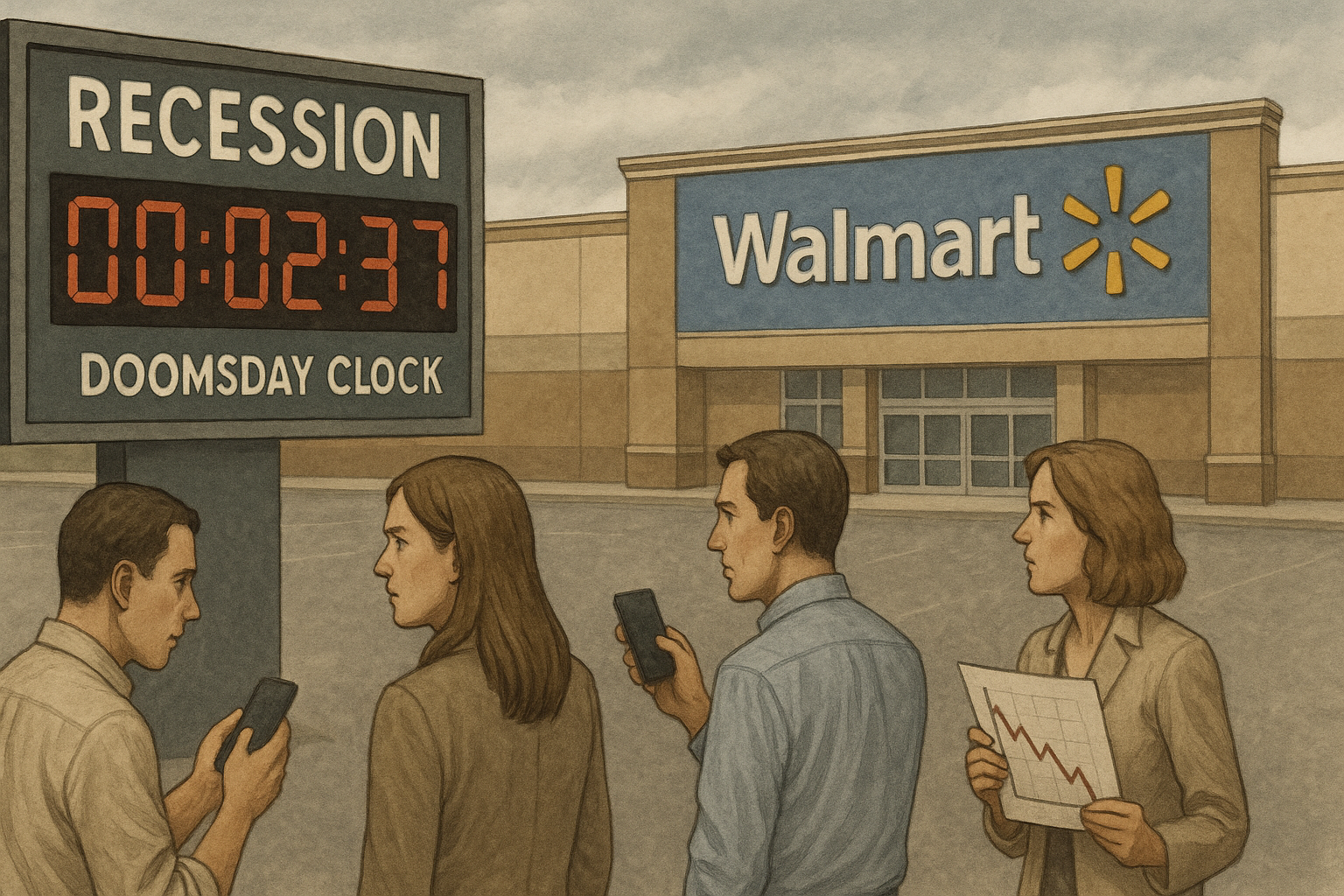It's that time again. Like seasonal allergies or holiday weight gain, the "recession-proof your portfolio" conversation has arrived right on schedule.
I've watched this movie before. Heck, we all have. The moment economic indicators flutter even slightly—this time it's "cooling consumer spending" and those persistently "sticky interest rates"—a particular investment ritual begins. Suddenly everyone's grandmother is asking about Walmart stock.
There's something almost... soothing about this collective financial panic attack. It's familiar territory. Comfortable, even.
Look, I've been covering market psychology for years, and what we're witnessing now is what some analysts (okay, mostly just me) call "recession anticipation allocation syndrome." It's that peculiar moment when perfectly sensible people who normally make rational decisions suddenly convince themselves that companies selling toilet paper and canned beans are financial fortresses.
The timing is almost comedic.
We're stuck in this weird economic twilight zone where every data point is essentially a financial Rorschach test. See what you want to see! Recession brewing? There's your evidence. Soft landing coming? Plenty of stats for that argument too. The confirmation bias is thick enough to spread on toast.
Walmart, of course, stands tall as the perennial recession sweetheart. During the 2008 meltdown (which, for the record, makes our current anxieties look like a mild case of the sniffles), WMT outperformed broader indices precisely because—who'da thunk it?—people still need stuff when times get tough.
But here's the thing about recession-proofing that nobody wants to hear: if you're reading articles about how to do it, you're probably already late.
The real secret? Timing is everything, and humans are spectacularly, almost comically bad at timing markets. By the time "defensive positioning" becomes the topic du jour at neighborhood barbecues, the smart money made their moves months ago. Walmart's already up about 15% year-to-date. That train? It left the station.
(I should note that nothing in this article constitutes financial advice. I'm just a journalist watching the same patterns repeat themselves with almost religious regularity.)
The contrarian in me wonders if the real opportunity might actually be in those beaten-down growth names everyone's fleeing from. Markets tend to overshoot—dramatically—in both directions. Remember how everyone dumped tech in early 2022? How'd that work out?
History suggests something rather humbling for us retail investors: by the time we're actively discussing recession preparations, institutional investors have already positioned accordingly. Markets look forward, not at what's happening now. They price in expectations, not current conditions.
Is a barbell approach smarter? Probably. Keep some exposure to quality companies with strong balance sheets that can weather storms, while saving some cash for when markets inevitably overreact. Just don't mistake activity for achievement—a portfolio truth I learned the hard way in 2011.
This economic moment feels distinctly different from 2008. Consumer balance sheets remain relatively healthy. Unemployment is still low. Corporate America isn't exactly drowning in debt. The recession everyone fears might end up being the financial equivalent of a head cold—technically a "recession" by GDP definition but hardly the economic apocalypse many seem to be preparing for.
But I could be wrong! That's markets for you. Nobody really knows what's coming, especially the people who sound absolutely certain that they do.
So sure, buy some Walmart if it helps you sleep at night. Just remember—if you're hearing about recession-proofing strategies from random journalists like me, you're not ahead of the curve.
You are the curve.
